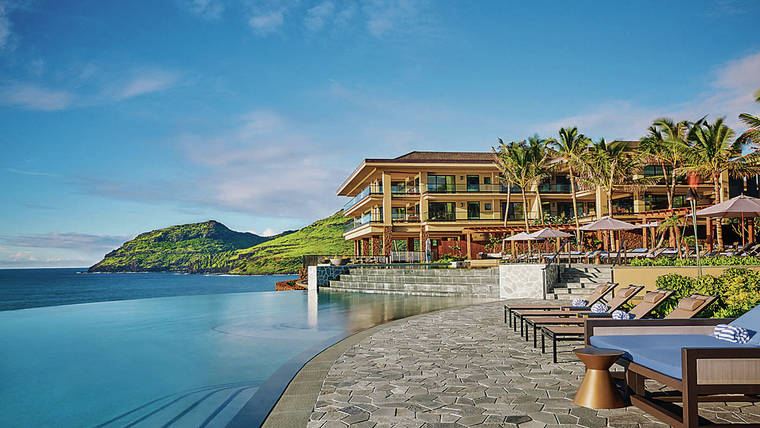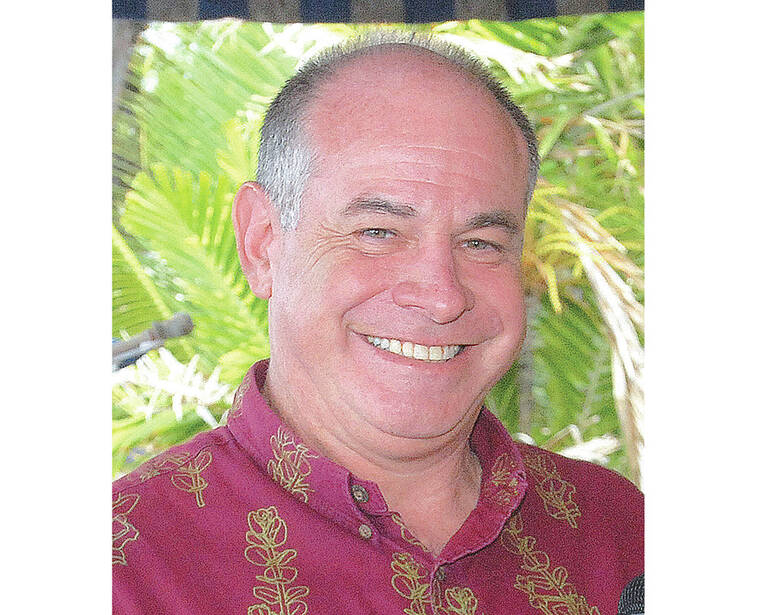Oahu vacation rental restrictions remain as other counties ease up

COURTESY TIMBERS RESORTS, HOKUALA
Hokuala — A Timbers Resort on Kauai plans to reopen Wednesday as tourism restrictions begin to loosen. The resort includes 47 luxury vacation rental residences and 72 timeshare units.
Most of the state’s visitor industry is in preseason training for the Aug. 1 reopening of trans-Pacific tourism, which revolves around a COVID-19 Opens in a new tab passenger testing program.
One exception is Oahu’s vacation rentals, which are still sidelined by Honolulu Mayor Kirk Caldwell’s emergency orders prohibiting them from operating as essential businesses.
The mayors of Kauai, the Big Island and Maui also put vacation rentals on COVID-19 lockdowns but on June 16 began allowing legal vacation rentals to reopen to guests who do not have to quarantine. The timing coincided with Gov. David Ige’s lifting of a mandatory 14-day quarantine for interisland passengers.
“Illegal rentals remain a problem on Oahu, and until we see the impact of the out-of-state travel modified quarantine and whether people are breaking quarantine to stay in illegal rentals, I would not want to see violators in our communities, where it is more difficult to monitor them,” Caldwell said Friday.
The 14-day quarantine for out-of-state passengers runs through July 31, and Ige is expected to extend it. However, starting Aug. 1 passengers with approved negative COVID-19 tests taken within 72 hours of their trip to Hawaii may bypass it.
The quarantine isn’t very appealing to travelers, who are required to confine themselves to a designated location for two weeks after arriving in Hawaii or face up to one year in jail and a $5,000 fine.
Don't miss out on what's happening!
Stay in touch with breaking news, as it happens, conveniently in your email inbox. It's FREE!
Properties hit hard
While Hawaii’s entire visitor industry is struggling, vacation rentals, especially on Oahu, have been among the hardest hit.
Only 9% of short-term units statewide were occupied in May, a month when emergency bans were active on all islands and occupancy experienced a 61.7 percentage-point drop. In comparison, Hawaii’s hotels, which are deemed essential businesses, were more than 14% occupied last month.
The loosening of emergency restrictions on Maui, Kauai and Hawaii island already have bolstered performance on the neighbor islands. Given there’s pent-up demand for vacation rentals in Hawaii and nationwide, further momentum is expected from the Aug. 1 testing program.
Loosening tourism restrictions have provided an opportunity for the closed Hokuala — A Timbers Resort, to reopen Wednesday, said Gary Moore, managing director of the 450-acre Kauai resort, which includes 47 luxury vacation rental residences and 72 timeshare units.
“We were impacted by the fact that people couldn’t come here,” Moore said. “We shut down at the end of March like almost every other resort on Kauai. We had to furlough 180 out of 200 staff members. Now, we’re taking a leap of faith. We’re reopening the resort, Hualani’s restaurant and our golf course. We’ve already brought back 50 employees and that number is increasing every day.”
Andreea Grigore, vice president of property management for Elite Pacific Properties, which manages approximately 300 short-term and 400 long-term properties statewide, said the company’s vacation rental business is starting to show signs of recovery.
“New bookings have been climbing steadily for three weeks in a row, and while we still have a long way to go before we catch up to last year, we are finally on the path to recovery,” Grigore said.
To be sure, AllTheRooms Analytics’ Forward Booking Index notes a rebound of Airbnb bookings in popular U.S. vacation rental destinations, including Hawaii — though it’s near the bottom.
According to AlltheRooms, Airbnb’s 90-day occupancy rates in Hawaii are down 39.5% from 2019. In comparison, nationwide occupancy during the same period only dropped 2.6% during the same period.
While other counties are showing vacation rental improvements, Oahu’s vacation rental industry is likely to continue bottoming out unless Caldwell has a change of heart.
Still, Grigore said even on the neighbor islands vacation rentals are not being treated equally to other businesses in the accommodations sector.
“While the mayors of Kauai, Big Island and Maui have allowed legal vacation rentals to reopen to guests who do not have to quarantine, visitors from out of state must quarantine in a hotel or motel before being allowed to stay in a vacation rental,” she said.
For these reasons and others, Grigore and other property managers across the state are forming a hui of licensed professional managers to advocate for legal vacation rentals.
“Mayor Caldwell’s glaring omission of legal vacation rentals from any reopening plans on Oahu is discriminatory against lawfully operating, tax-paying vacation rental owners and operators,” Grigore said. “The obvious consequence of this is that it’s causing severe economic hardship for individual owners of vacation rentals as well as vacation rental management companies.”
Another hui member, Munro Murdock, founder of Love Hawaii Realty and Love Hawaii Villas, said vacation rental losses, especially on Oahu, are mounting.
“From the end of March through June, we’ve lost $300,000 as a management company for 30 owners,” Murdock said. “We’re projecting well over $2 million in losses for our owners.”
He said unemployed hotel workers have gotten lots of attention but vacation rental industry employees also are struggling.
“I was initially able to bring 15 employees back to work with (Paycheck) Protection Program funds, but they’ve run out and my employees are laid off again,” he said.
VACATION RENTAL MELTDOWN by Honolulu Star-Advertiser on Scribd
SLIGHT AIRBNB REBOUND by Honolulu Star-Advertiser on Scribd
Rental crackdown
One of Caldwell’s chief concerns about lifting the nonessential business ruling for Oahu vacation rentals is the county’s historic struggle with complaints about short-term rentals.
Last Aug. 1, the city ramped up enforcement of suspected violations of short-term rental laws after Ordinance 19-18 took effect. The new law made it illegal to advertise properties for short-term rentals of less than 30 days unless the property owner had previously obtained a nonconforming-use certificate. It also required properties that have a nonconforming-use certificate to include that registration number in their advertisements.
City crackdowns meant Oahu vacation rentals were shrinking even before the COVID-19-related emergency ban.
However, Larry Bartley of Save Oahu’s Neighborhoods, said he’s been “receiving comments from the North Shore, Kailua, Waimanalo residents that temporarily empty illegal vacation rentals are now filling up again and that the tourists are not quarantining.”
Other islands also have struggled to control the spread of illegal vacation rentals with varying degrees of success. Kauai County had a breakthrough Thursday when it entered into a memorandum of understanding with Expedia, which includes VRBO and HomeAway under its umbrella.
Amanda Pedigo, Expedia Group’s vice president of government affairs, said Friday, “I don’t recall us having a voluntary and proactive MOU with any location in North America that leads to balanced vacation rental policy that allows tourism to continue to thrive.
“We consider this to be the first step in a long partnership with Kauai to make sure that listings in Kauai are and continue to be permitted,” she said.
Expedia has agreed to require that Kauai hosts provide a tax-map-key property identification number to advertise on its hosting platform and to provide the county with monthly reports that include these numbers. If the county finds that a vacation rental has provided an invalid TMK or a TMK that isn’t in a zone that allows vacation rentals, Expedia has agreed to remove the listing.
Grigore, who lives on Kauai, said she is a proponent of regulating illegal vacation rentals and supports the intent of the MOU between the county and Expedia Group, but has concerns about maintaining privacy and security for owners if the TMKs are publicly advertised.
“Expedia Group and other (online travel agencies) could collect the TMKs, permit numbers and tax ID numbers from each vacation rental owner and supply that information to the county without making this information public,” Grigore said.
Pedigo said Expedia also is talking with Maui and would welcome the opportunity to come back and talk to Oahu.
“We are reviewing options including Kauai’s agreement,” Caldwell said.
Bartley said he’d like Oahu to consider entering into a similar agreement as Kauai.
“This is a good step in the right direction,” Bartley said. “Can you imagine booking a hotel room that refused to divulge its location until after a deposit?”




